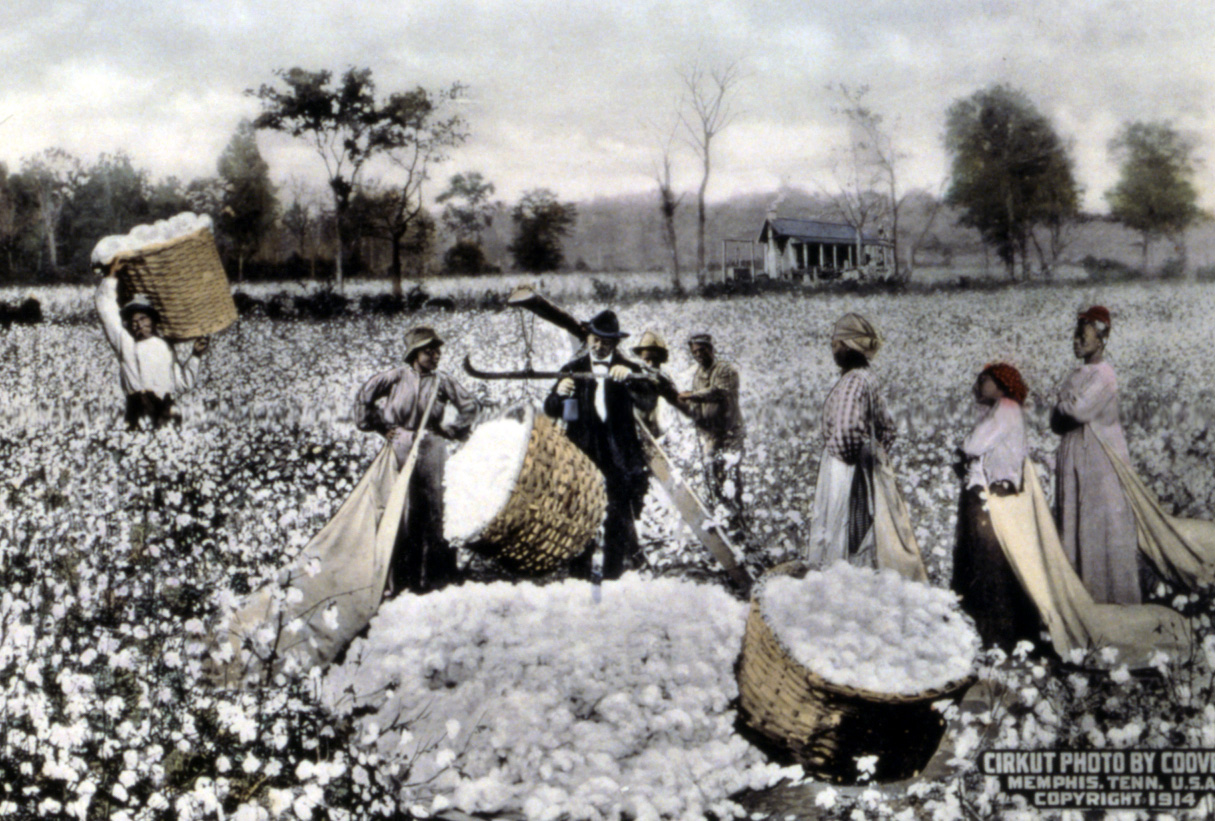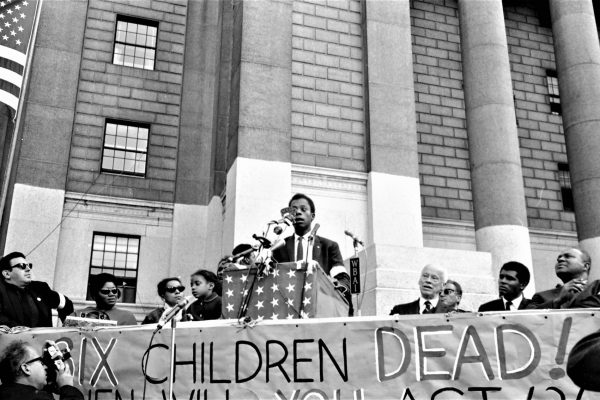Walter Johnson argues against a triumphalist narrative of liberal human rights that elides the bloody past of racial slavery and land expropriation in the United States. Taking to task eminent slavery scholars Philip Morgan and James Oakes and a voluminous literature on human rights, Johnson argues that “we are separating a normative and aspirational notion of humanity from the sorts of exploitation and violence” that may well typify human behavior itself, “separating ourselves from our own histories of perpetration.”
By invoking the black radical intellectual tradition of W. E. B. Du Bois, Eric Williams, Walter Rodney, C. L. R. James, Angela Davis, and Cedric Robinson, Johnson counters the subterranean creep into historical scholarship of liberal notions of justice. In its place Johnson proposes an alternate genealogy in which the original sins of indigenous land seizure and the Atlantic slave trade served as the genesis of global capitalism. Calling on historians to revisit and expand their understanding of primitive accumulation, Johnson explains, “Rather than asking over and over what Marx said about slavery, we should follow Robinson in asking what slavery says about Marx.” He laments that slavery remains insufficiently integrated into the history of capitalism, just as the historical experience of enslaved people themselves has become marginalized in some of the most elite academic circles.
Since the Great Compromise of 1877, the history of slavery, emancipation, and Reconstruction has been one of the most deeply politicized arenas of American history. For nearly a century, a white supremacist view of the “peculiar institution” dominated university studies, with slavery represented neither as capitalist nor as harmful to the enslaved. Instead African enslavement was understood as either the continuation of a feudal order awaiting the modernizing tide of market forces or as a civilizing mission that delivered the backward peoples of Africa into enlightened modernity. Du Bois’s The Suppression of the African Slave Trade to the United States of America (1896) and Black Reconstruction in America (1935), as well as Trinidadian scholar Eric Williams’s Capitalism and Slavery (1944), offered dissenting perspectives, but racial segregation in the university limited their sphere of influence.
With the massive social upheaval of the post–World War II African American freedom struggle, benign accounts of chattel slavery became increasingly obsolete. Buttressed by the burgeoning civil rights movement’s battles against legal segregation in the South and racial inequalities in housing, education, and jobs in the North, a subsequent generation of postwar slavery historiography viewed U.S. slavery from the “bottom up.” The desire to understand the interplay of capitalist forces in chattel slavery and the slave trade accompanied a search to document the experiences of enslaved peoples themselves. These two schools of thought did not always agree, but taken together they represented an important shift towards the radical social history of the 1960s and ’70s.
Johnson now offers a crucial critique of a new wave of historiographic “common sense” that has again shifted back toward an elite focus on “slaveholders and their business partners,” often to the exclusion of the enslaved. Strikingly, this turn among a select group of historians of capitalism and slavery takes place during a time of extreme state violence against people of color, from Ferguson to Standing Rock; two of the longest imperial wars in history, waged in Iraq and Afghanistan; neoliberal retreat from the welfare state; and the legal evisceration of voting rights’ protections. Following Du Bois, Johnson pushes against this scholarship, arguing instead for the “subtle and dynamic relationship between capitalist exploitation and white supremacy.” And of course he is not alone in this enterprise: while Johnson takes some of the field’s elder statesmen to task, his larger project has been realized by numerous contemporaries, including Jennifer Morgan, Peter Hudson, Stephanie Camp, Stephanie Smallwood, Ed Baptist, Marisa Fuentes, Walter Rucker, Barbara Krauthamer, Rashauna Johnson, Jessica Marie Johnson, Vanessa Holden, and Caleb McDaniel.
Johnson’s essay is politically urgent. The framework he offers for understanding racial capitalism matters in and beyond the university, perhaps most immediately for our collective national memory during Donald Trump’s presidency. While Johnson focuses on how professional historians study and understand chattel slavery and Native land expropriation, his essay avails us of tools to analyze later periods of American history, including the country’s steady march to the right over the past half-century.
Johnson insists on placing the United States in a broader global frame that includes histories of imperial conquest levied at the expense of the “dark and dispossessed.” His point helps explain why so many liberal (and left) intellectuals in the United States look longingly toward Europe. The sense is that if we could just stop focusing on race by grounding ourselves in Enlightenment universals, we could begin to build a European-style social democracy. Too often the points of comparison for this political project are wealthy Western nation-states such as England, Germany, and France. But given our history as a settler colony built through a centuries-long process of land seizure and racial slavery, a more apt set of comparisons would include Australia, Brazil, and South Africa. It is telling that South Africa has the most unequal distribution of wealth in the world.
Indeed, the concept of racial capitalism first emerged in the decades before the overthrow of the apartheid state in South Africa. Marxist activists and radical members of the Black Consciousness movement developed this framework to understand the resilience of apartheid rule. First applied to the Americas in Cedric Robinson’s groundbreaking Black Marxism (1983), the conceptual groundwork for racial capitalism emerged out of collaborative political work in South Africa to understand why portions of the country’s white working class and black middle class supported a racial state presided over by a white capitalist class. In his forthcoming book, Neoliberal Apartheid, sociologist Andy Clarno argues that at the core of racial capitalism is “the recognition that racialization and capital accumulation are mutually constitutive processes that combine in dynamic, context-specific formations.” The processes of dispossession, coerced labor, sexual violence, and forced reproduction, documented in Deborah Gray White’s Ar’n’t I a Woman? (1999), remind us that race, class, gender, and sexuality can never be separated or understood in isolation from one another.
These historical questions are not mere matters of disinterested contemplation. We are living in a time of misplaced anger and conscious forgetting, in which critics from venues as diverse as the New York Times and Jacobin have railed against a vague and capacious thing that they dismiss as “identity politics.” This fungible category seems to mean everything from the rights-based logic manifest in the Civil Rights and Voting Rights Acts of the mid-1960s to the contemporary insistence on campus “safe spaces” for college students. It has been held responsible for the defeat of the Democratic Party and for the elevation of a crude real estate tycoon turned media celebrity to America’s forty-fifth presidency.
What is omitted from this analysis is as telling as what is included. Foremost is the role of voter disfranchisement in the 2016 election. Currently nearly six million people are disfranchised because of felony convictions, with one in thirteen African Americans unable to participate in the democratic process. The critique of a nebulous identity politics, which often targets precisely the populations placed in the cross hairs of the incoming administration, ignores the explicit racialization of economic issues that catapulted Trump into office. Each of his recurrent campaign promises—to tear up trade agreements, build a wall along the Mexican border, and “drain the swamp” of campaign finance—corresponded to economic expectations of white voters across class lines. Trump mobilized feelings of resentment to target working populations that are poorer per capita than his white supporters, with Latino families possessing one-tenth the wealth of the average white family, and black families possessing one-thirteenth. Trump made this agenda ever more explicit by choosing racists and billionaires for his cabinet. Among other appointees, Trump selected an avowed white nationalist, Stephen Bannon, and Michael Flynn, who advocates a global war on the Islamic State.
We seem destined to relive many of the racial legacies of our founding. Trump’s promise or threat—depending on your subject position—to “Make America Great Again” demonstrates this tendency, as does the recourse to mythic narratives of the American past to explain his success. Among the most improbable of Trump’s media-driven misrepresentations has been his transformation into a personification of white working-class revolt, which helped mobilize the economic anxieties and fears of a population that feels neglected by the Washington establishment. Downward mobility, loss of wealth, and economic instability are unquestionably affecting all residents of the United States. But the singular focus on whites as embodying a deracialized set of “class-based interests” must be understood as an inheritance of slavery, Jim Crow, and the long racialization of state practices, such that whiteness is often both invisible and normative in matters of citizenship.
Political scientist Mark Lilla, whose New York Times op-ed went viral after the election, argues that the Democratic Party should embrace the unifying visions of Ronald Reagan and Bill Clinton. He praises Clinton, in particular, for seizing control of the party from its “identity conscious wing” and “appealing to Americans as Americans and emphasizing the issues that affect a vast majority of them.” Strikingly, Lilla is silent on the topic of Clinton’s signing of the North American Free Trade Agreement (nafta) and on his elimination of the Glass-Steagall Act, which many have argued paved the way for the 2008 financial crisis. Instead, drawing on the potent racial trope of Nixon’s silent majority, Lilla laments, “The media’s newfound, almost anthropological, interest in the angry white male reveals as much about the state of our liberalism as it does about this much maligned, and previously ignored, figure.” In a perverse twist, Lilla singles out the Ku Klux Klan as America’s first identity-based movement. This remarkable exercise in denial and forgetting collapses the distinction between the struggle of African Americans to realize their rights and a vigilante organization aimed at maintaining white rule.
As Lilla and others have made clear, post-racialism haunts American popular media as well as the university. The framework of racial capitalism offers a powerful alternative that allows us to talk about the urgency of redistributive justice. Only a reckoning with our longue durée history—one that acknowledges capitalism’s genesis in Atlantic slavery—can help us to understand why race, class, gender, and sexuality cannot be productively disentangled in our present struggles for a just society. As Stuart Hall aphorized, race is the modality through which class is lived. Likewise, Johnson reminds us of the importance of black radical thought and the anti-colonial left to how we understand our shared history as well as our present moment.
This forum is featured in Race Capitalism Justice, now available in reprint. Order your copy today.








